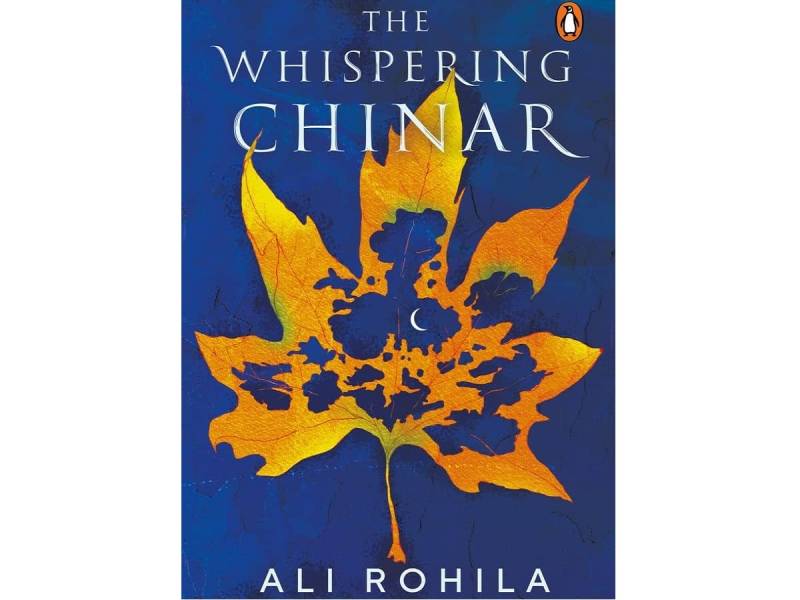
There is something RK Narayanesque about Ali Rohila’s interconnected tales. Set in or stemming from the village of Charbagh, simple and unpretentious, they are sensitive, character-driven stories. The characters are drawn in bold and definite brushstrokes; their persona not translucent and their intent not veiled. Hence, they almost never behave out of character; hardwired, path-dependent, strait-jacketed by their gender, class, ethnicity and cultural milieu as they are. What you see, therefore, is almost always what you get. The milieu they inhabit is one where dogma, superstition and prejudice remain entrenched and formidable foes. Hence, there the similarity ends for Charbagh is no Malgudy of relatively harmless, idiosyncratic and largely innocuous inhabitants. Unlike Narayan’s Malgudi, Ali Rohila’s Malgudi in Khyber-Pakhtunkhwa is a considerably more sinister place where religious bigotry, patriarchy, misogyny and radicalism often manifest in all their unsightly avatars. Machinations rather than happenstance are the order of the day. Rohila writes about characters caught up in the whirlpools whipped up by these corrosive imperatives with palpable passion, indignation, wit, and sarcasm, but always with a deep empathy. A certain wistfulness and a lingering pensiveness permeate his narratives — always a yearning for what could have been if only compassion had prevailed, and love had triumphed. For the outcomes of his stories are almost always dismal for the nobler souls, as human caprice and wickedness largely overwhelm. But then we are introduced also to various valiant women and men who boldly go against the tide, pay a price, but nevertheless hold their heads high and stay resilient to fight another day.
Ali Rohila hails from the land he writes about and instinctively knows and feels its socio-cultural arrangements, its honour code, its political economy of politics and religion, its freedoms and its disparities, its generosities and its close-mindedness, and its breath-taking grandeur. To his credit he neither romanticizes not exoticises the place and its inhabitants but tells his tales of avarice and jealousy, lust and love, rivalry and ego, power and vulnerability, with disarming straight-forwardness. Having been a close observer of various changes in the turbulent region over the past decades, he explores the terrain of traditional culture as well as rapid modernity and various contestations between the two; as also overlaps and contrasts of the rural and the urban and of the feudal and the corporate. The Whispering Chinar is thus an enticing and highly readable cultural and social chronicle of Pakistan in the 1970, 80s and 90s as it evolved, persevered and moulded through a complex era of frequent and brusquely interrupted democracy, hapless westernization and changing normative frameworks.
An astute observer of how power consolidates and exerts itself — whether in a feudal milieu or a commercial one; in matters of matrimony, land ownership, corporate leadership, or religious fiefdoms — his nuanced descriptions are thought-provoking. The military, the cleric, and the feudal patriarch — ubiquitous and relentless overlords in our brand of hegemony and stiflers of a rich, diverse and vibrant culture — are meticulously deconstructed and dismantled by Rohila’s bold and unsparing pen. Romantic relationships too are an enigma that Rohila explores deftly, with considerable emotional insight and an eye for detail. Like any multi-tiered endeavour, The Whispering Chinar is therefore not amenable to narrow categorizations but a rich and layered text that operates at multiple levels.
A successful banker by day, Ali Rohila is someone steeped in the great poetic and romantic traditions of the land. His late father Parto Rohila was and remains a major influence — a thorough gentleman, respected professional, accomplished poet and deep admirer and translator of Ghalib, most notably his letters in Persian. It is with such inherited sensibilities that Ali Rohila gazes at the world he grew up in. Appalled by much of what he witnesses, he is too upright, candid and forthright to settle for being an apologist, an escapist or a disconnected aesthete. For him storytelling, therefore, is quite evidently not simply a mode of self-expression and creative exploration but a mode of confronting injustice, no matter how distressful the confrontation. The current volume is the successful culmination of years of dedication to writing as a meaningful and socially and politically relevant pursuit.
As it is short stories and poetry are very hard to find publishers for. Getting published by a prestigious publisher like Penguin Random House India is, therefore, no mean feat. Now published also by Liberty Books in Pakistan the volume of short stories is thankfully available to his compatriots and an exciting addition to the growing corpus of Pakistani fiction in English. Here is a hearty welcome to the Pakistani and South Asian writers’ community.

